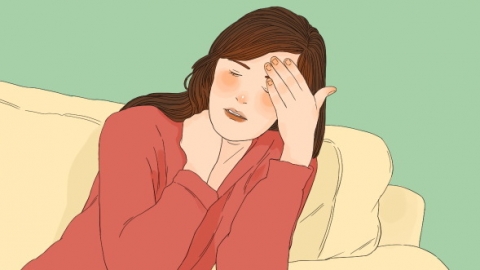What should I do when under stress?
Generally, high stress levels may be caused by excessive physical exertion, nutritional imbalances, neurasthenia, anxiety states, hyperthyroidism, and other factors. It is recommended to seek medical attention promptly, identify the underlying cause, and then improve symptoms through lifestyle adjustments, medication, and other methods under a doctor's guidance. Specific analyses are as follows:

1. Excessive physical exertion: Prolonged overwork or intense labor can lead to decreased physical function and heightened perception of stress. It is important to balance work and rest appropriately, ensuring at least one hour of relaxation daily. Activities such as bathing or massage can help relieve physical fatigue.
2. Nutritional imbalance: Picky eating or dieting may result in deficiencies in B vitamins and protein, weakening the nervous system's regulatory capacity. Maintain balanced meals throughout the day with increased intake of lean meat, legumes, and whole-grain bread. Avoid relying on sweets or fast food to cope with stress.
3. Neurasthenia: Chronic stress can cause the nervous system to become easily excited and fatigued, often accompanied by headaches and insomnia. Follow medical advice when using medications such as oryzanol tablets, vitamin B1 tablets, or Anshen Bunao Liquid. Also, reduce late-night hours and maintain a regular sleep schedule.
4. Anxiety state: Persistent accumulation of stress may lead to unexplained tension and restlessness. Patients should take medications such as sertraline hydrochloride tablets, paroxetine tablets, or lorazepam tablets under medical supervision, combined with psychological counseling to release inner stress.
5. Hyperthyroidism: Excessive secretion of thyroid hormones accelerates metabolism, leading to emotional excitability and increased sensitivity to stress. Medications such as methimazole tablets, propylthiouracil tablets, and metoprolol tartrate tablets should be taken as prescribed to regulate hormone levels.
In daily life, engaging in exercises such as jogging or yoga can promote endorphin secretion, ideally 3–4 times per week. Communicating regularly with family and friends, breaking stressful tasks into smaller goals, avoiding excessive rumination, and comprehensive lifestyle regulation can all help alleviate stress effectively.






